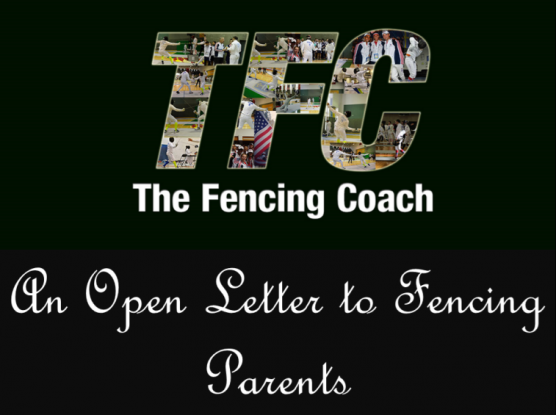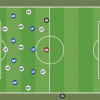Dear Parents of Fencers,
You have made a wonderful choice in financially supporting your child/children in learning the Olympic sport of fencing. Fencing is a sport that teaches unparalleled discipline, personal accountability, how to overcome adversity, and is a sport that (mostly) attracts an assortment of wonderful characters. I began fencing when I was 9 years old, and it has largely defined who I am today.
Participants in the sport would likely identify fencing as a “niche sport.” It will never reach the glamor and popularity of say, the NFL, the NHL, or the MLB, but the fencing community is rip-roariously passionate about the sport and most fencers love it with all their being.
Throughout my years of fencing/coaching, I have seen many friends come and go. Some get jobs that prevent them from continuing. Some just decide that it’s time to move on to bigger and better things in life. Some simply “dial down” their level of effort put into the sport. But then—you get some who just outright burn out and never want to pick up a weapon again. And it is because of this burnout category that I wish to write you this letter, dear parents.
99% of fencing competitions are individual. Occasionally, you will get a team competition sprinkled into the competitive schedule, but for the most part, fencing is about how your child performs. When they fail, they have no one to blame for their failures but themselves; and when they succeed, it is their hard work and determination that will mold the foundation of their character for the entirety of their lives. While the coach plays a role in the success of the fencer, the real catalyst for fulfillment in the sport is you—the parent. So please listen to the following rules of engagement with your child, and listen to them carefully. I’ve seen every kind of failure that leads to burn out, and I hope you’ll take these words to heart:
Do not tell your child that he/she is learning fencing to get into a good college- Far too often, I see parents enrolling their kids in fencing because they think it is a vehicle to get into an Ivy League school. To an extent, they’re right—a good fencer has a higher chance of getting into a good school, but that’s not the proper lesson to teach your child. Unfortunately, this is something I see more than I would like. Not only does it put an inordinate amount of pressure on the fencer to perform, but it also sends the message that they shouldn’t pursue things for the joy of learning them. Not once in my life did my parents put that kind of pressure on me. I had good results in high school and ended up at Brandeis University. A happy ending.
Praise your child for effort, praise them for winning, but do not berate them after a loss- Fencing is a harsh, harsh sport. And when your child suffers a tough loss, the emotions can often be tough to overcome. I have seen the wide range of parental guilt, from the screaming parent who breaks down their child until they cry, the harsh tongue of the tiger mom, and good old fashioned Jewish mother guilt (I recall a tournament I fenced in college where a kid gave up a few big leads and his mother yelled “SCHLOMO, THIS IS WHAT I PAID FOR?!!?!?!) If your child has put his/her best foot forward, trained hard, exhibited discipline and gave their all, then the role of the parent is to help the child overcome adversity. My parents taped all of my bouts in high school, and win or loss, we would sit down and watch together, figure out what could have gone better and make tweaks on my game heading into the next tournament. Not once was I scolded for a loss, but you better believe if I didn’t go 100% on the strip in victory or defeat I would get an earful.
Use the sport to teach your child loyalty- There will come a time in every fencer’s career when they might outgrow their coach and have to move on to another. But too often, I see parents expecting instant gratification and shifting coaches around in a revolving door, expecting the quick swaps to yield quick results. Good coaches are just as much your family as they are your teachers. A good coach will not give up on his/her students as they learn the game of fencing, and it is of the utmost importance to return that favor and show your coaches loyalty.
Don’t expect instant gratification- Fencing is a cyclical game of peaks, plateaus, and slumps. If you’re expecting your child to go to a NAC/Junior Olympics and make points in their first tournament, chances are, you’re going to be thoroughly disappointed. First time around, they’ll be lucky to make it out of pools alive. Every fencing tournament is an investment, and the more competitive experience your child gets, the quicker they will learn the nuances of the game. Have faith in your child, have faith in your coach, and remain supportive through both the trials and the errors.
Don’t try to live vicariously through your child, and don’t benchmark them against their peers- Fencing is your child’s activity. Your job is to write the checks, provide support, and encourage hard work. If your mood ebbs and flows with the success of your child, then it is best to stay home. One father of a particularly good fencer used to proclaim “MY SON IS THE GOD OF CADETS!” And now the God of cadets has failed enough drug tests in the sport that you would think he was an MLB player. Why? Because his dad was a whifferninny. Oh—and remember, not everyone is going to be a Tim Morehouse/Jonathan Yergler/Gerek Meinhardt. So don’t judge your child if they’re not learning as quickly as their peers. Some fencers are late bloomers.
You’ve picked a great sport—the greatest one in fact. Your coach will show your child the moves. Your child will learn the sport with your expectation that they’re giving their all. And you will see your child learn discipline, responsibility, and embark on a journey with wonderful friends they will keep their whole life. That’s the happy ending to the tale—just don’t stumble into any of the above pitfalls. Peace, love, and swordsmanship.
Damien Lehfeldt
















